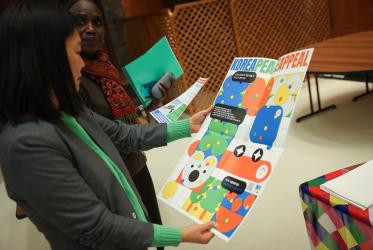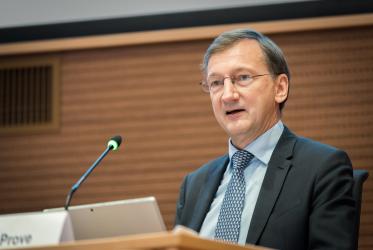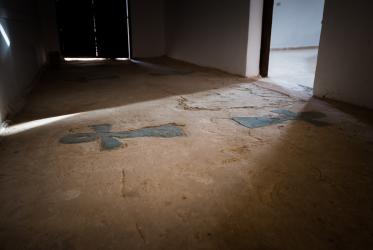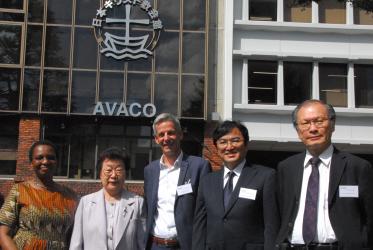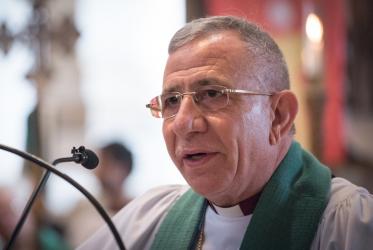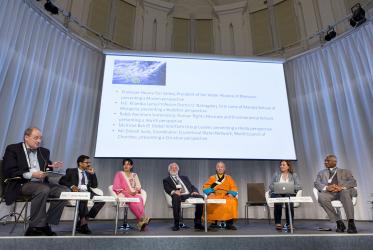Displaying 1 - 20 of 45
07 December 2023
WCC well-represented in Religions for Peace leadership
07 October 2019
In Japan, theologians reflect on today’s global manifestations of racism
18 September 2019
A passionate Korean feminist and ecumenist
21 August 2019
Peacemakers at work in Sri Lanka
29 April 2019
Peace is common denominator of all major religions
05 March 2019
#WCC70: Nathan Söderblom, ecumenical pioneer
29 August 2018
Unifying faiths in peace and harmony through dialogue
10 April 2018
WCC delegation visits China
04 January 2018
Trying to do good for the world
18 December 2017
G20 summit: call to pray for peace in Hamburg
07 July 2017
Bishop Younan awarded Niwano Peace Prize
22 February 2017
